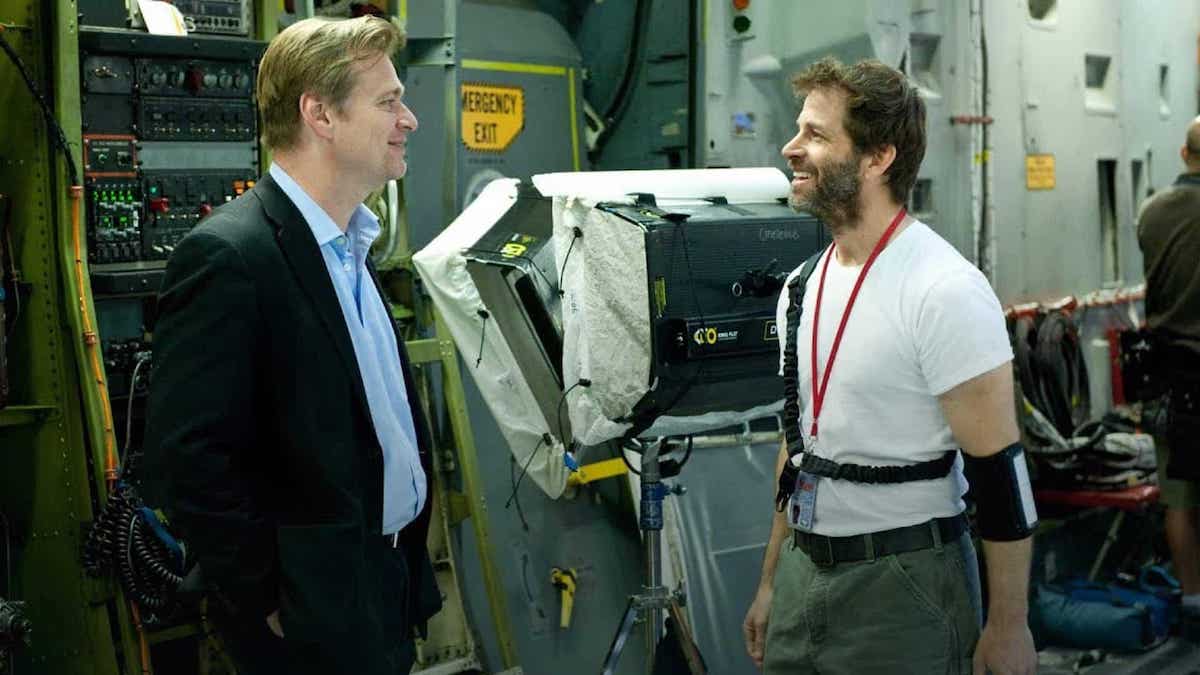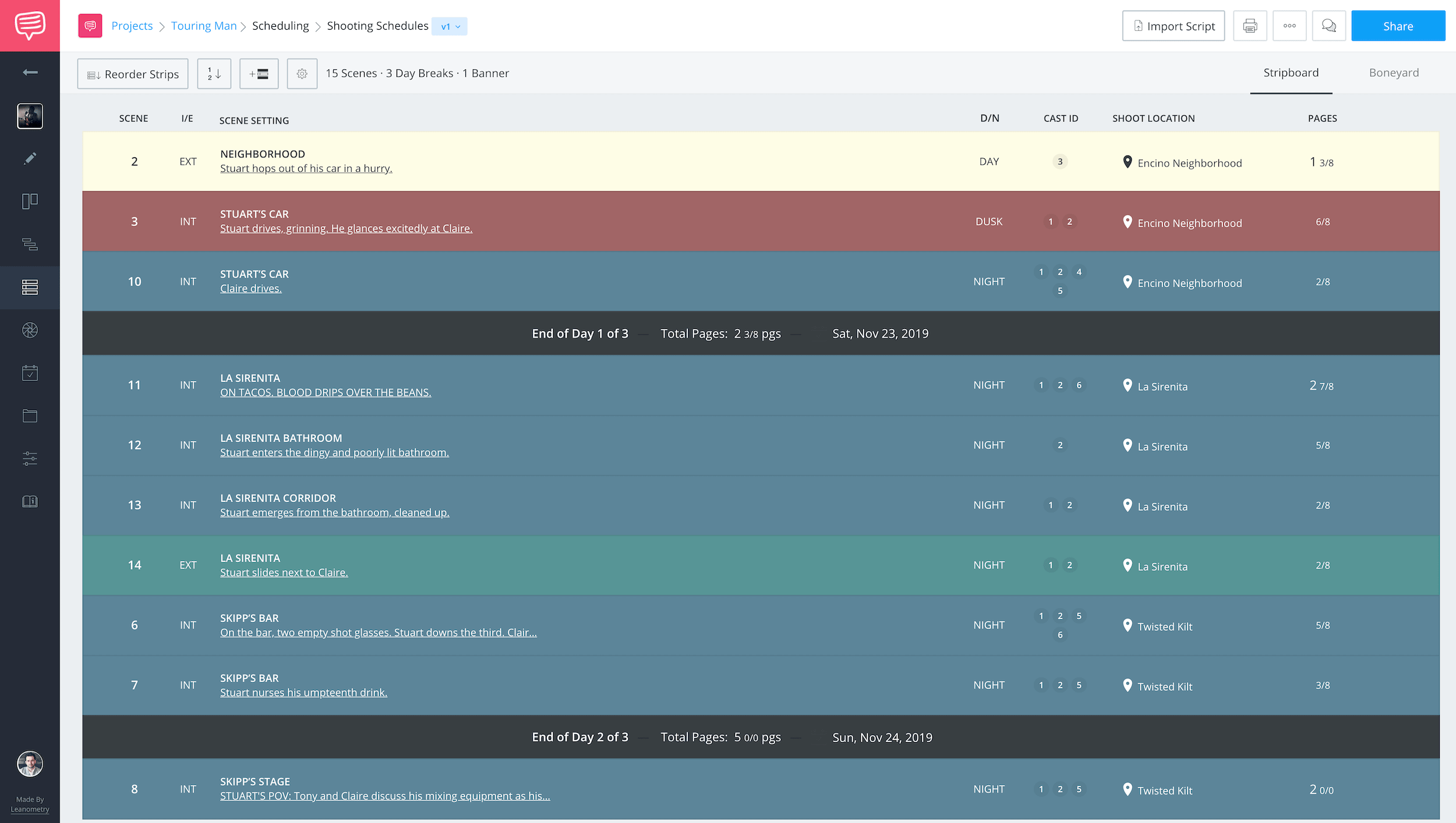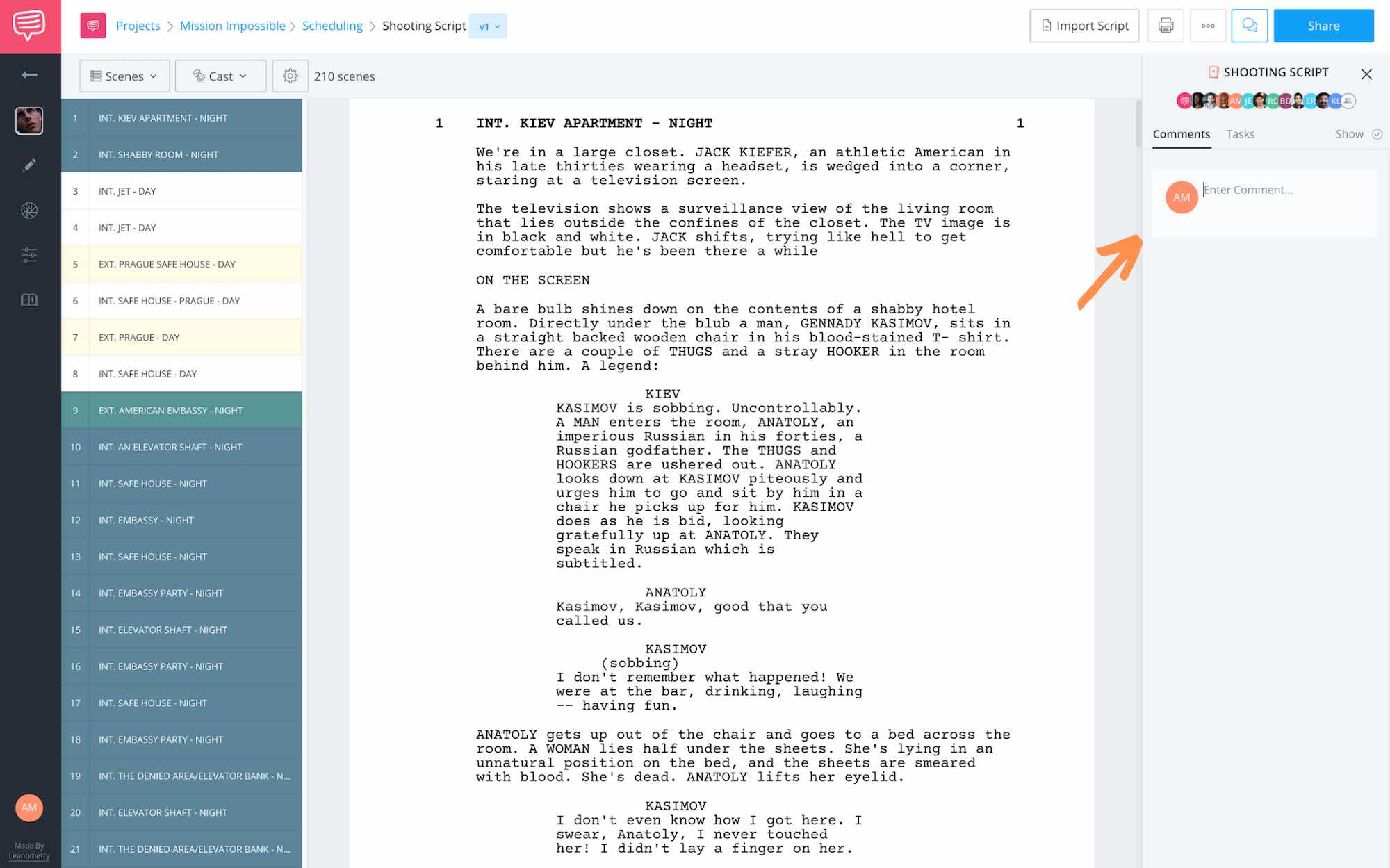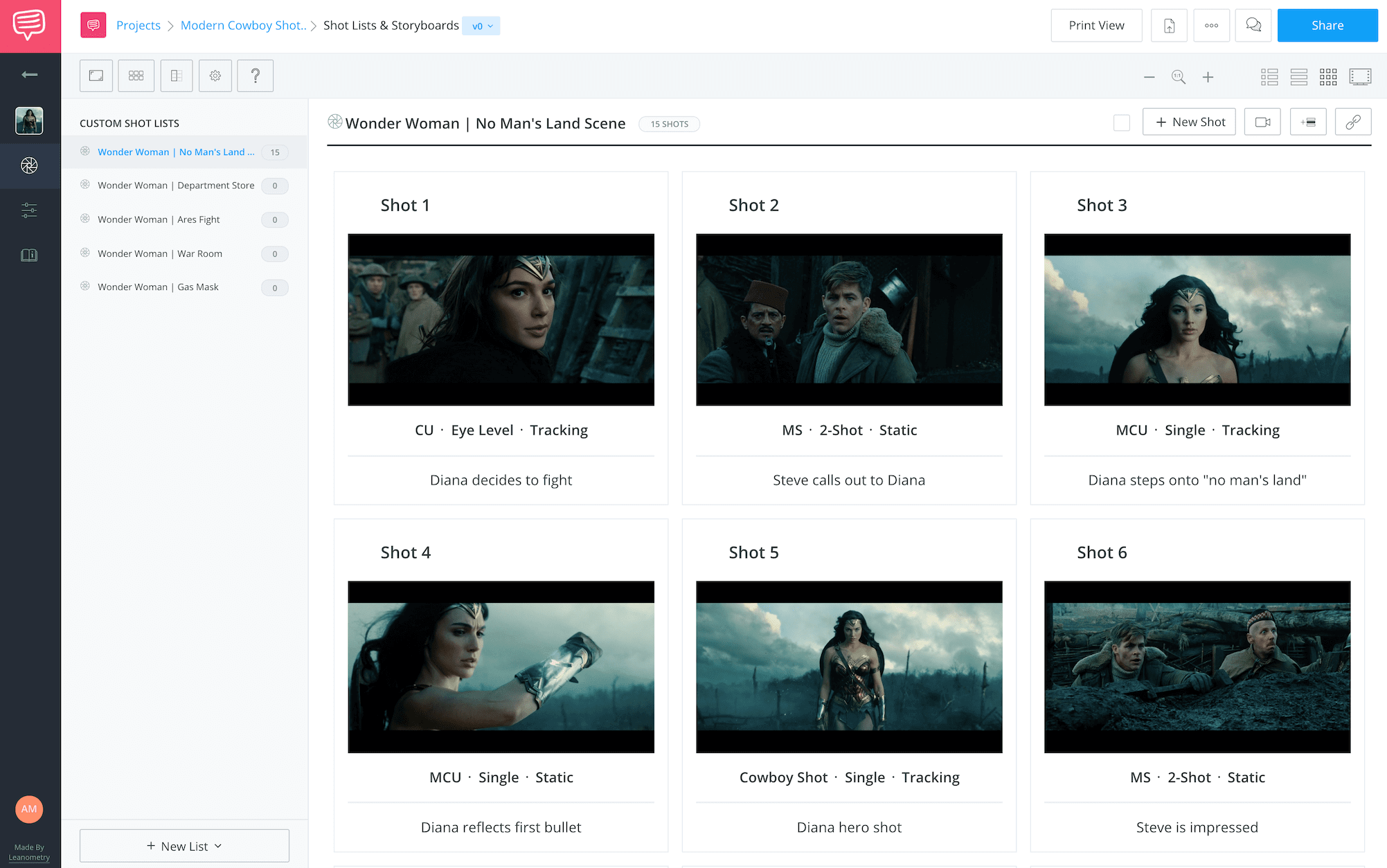Film producers and directors both have major responsibilities during the filmmaking process, but none is as important as their ability to work together. This post discusses producer vs director responsibilities, addressing the specifics of each role, while also pointing to why their clear communication is critical to the making of a film.
Producer vs Director
Difference between director and producer
Before we outline the duties of each position, let’s take a moment to understand the fundamental difference.
A film producer manages the business side of the production, while the director handles the creative side.
There are also many producers, (because there are many moving parts to producing a film), while there is typically only one director making the majority of the creative decisions.
In order to stay on task and meet deadlines, the two must be in constant communication with each other. Because there are usually more than one producer, the director also communicates heavily with 1st assistant director, who also stays in touch with the other producers.
Role of Producer vs Director
What does a movie producer do?
Even though there are typically many producers, each with their own set of duties, there are general goals of the movie producer. So let’s briefly define the position and then jump into the responsibilities.
FILM PRODUCER DEFINITION
What is a film producer?
A film producer is a person that initiates, coordinates, supervises and manages the creation and production of movies, television shows, web series, and commercial videos, amongst other productions. A producer may be a self-employed contractor, or subject to the authority of an employer such as a production company or studio. They are involved throughout all phases of production from inception to completion, including coordination, supervision, and control of finances, talent, crafts.
WHAT DOES A PRODUCER DO?
- Find and develop material
- Budget and Schedule
- Raise Money
- Manage pre-production & production
- Hire cast & crew
- Manage post-production
- Marketing/Distribution
We’ve outlined the basic duties of a producer. There are of course several different types. And when it comes to television, the way each one interacts can be different.
We have a few articles that dive into each: the role of a line producer, the duties of the line producer, as well as others about associate producers, co-producers, and executive producers.
Finding & Developing Material
A producer is always on the hunt for a new script. Whether they themselves buy the rights to a book, and hire a writer to write it. Or a writer has already finished an original and it caught the producer’s eye.
Budgeting
Before a producer can go scout for funds, they put a budget together. This will help investors decide if it’s worth their time and/or do able for them. A fiscal road map will establish trust between you and potential investors. It will also keep you on track in terms of hiring cast and crew, revealing where you can cut corners and where you can’t.
Fundraising
The producer is responsible for getting the money to actually make the film. Or at the very least, they find people who can help find the money! This is usually where pitch decks are created to sell the idea to potential executive producers looking to get involved.
Scheduling
The producer typically makes the schedule. And they schedule shoot days within the limits of the budget. This is why budgeting is so important. If you’ve budgeted, you’ll know, roughly, how many days you can shoot.
The producer also schedules based on talent’s needs and considers locations early. If there are scenes in the same location, the producer will likely schedule those on the same day. Of course, there are exceptions to everything. Production management software has made it easier to juggle all these considerations. You can streamline the entire production process, from script to scheduling, with these softwares.
Below is an example of a shooting schedule populated from importing a script into StudioBinder:
How to create a shooting schedule is a must for all producers.
Hiring Cast & Crew
The producer is responsible for hiring everyone. Yep, even the director.
But it’s hard to say that the producer is “in charge of” the director. The reason why the producer hires that specific director is for their vision. And once the director is hired, the producer does everything in his or her power to support the director’s vision.
So who’s in charge of who?
Well, they really work together. Often the director is responsible for hiring his or her assistant director.
The producer and director also work together when casting. We’ll expand more on this in the director’s section.
Managing Pre-Production & Production
Once everyone is hired, pre-production consists of securing locations and permits, call sheets, and even dealing with SAG contracts, depending on who is casted.
During the actual shooting, the producer is on top of the production team. They are in communication with all department heads, ensuring everyone is doing their job.
Of course, different producers do different things.
On the ground producers are typically your line producers.
Managing Post- Production
During shooting, producers should already be in communication with editors. They often send footage before the production is wrapped.
Once the production is wrapped, the producer, like the director, assists the editors with anything they need. The producer may also assist the director with hiring a VFX producer or any other post necessity like composer or colorist.
Sometimes, on larger productions, the producer also acts as a middle man between the director and the studio.
Marketing/Distribution
It’s the role of the producer to market the film. And there’s quite a bit that goes into this. Whether it’s entering film festivals, or making sure all of the paperwork is in for your deliverables, it may seem like the producer’s job never ends. Learn more about distribution and deliverables in our Ultimate Guide to Film Distribution.RELATED POSTS
What does a Movie Director Do?
What do directors do?
Yes, a movie director directs movies, but what does that actually mean?What's their day-to-day like, and what are the main considerations they take before the start filming, during, and after? Here is our definition, and then we can jump into a director’s responsibilities.
FILM DIRECTOR DEFINITION
What is a film director?
A film director is a person who directs the making of a film by visualizing the script while guiding the actors and technical crew to capture the vision for the screen. They control the film’s dramatic and artistic aspects.
WHAT DO FILM DIRECTORS DO?
- Interpret scripts
- Set tone of film
- Work with department heads
- Help producers cast
- Directs actors and camera
- Works with editors
Translating the Script to Screen
Director can make revisions in the script if necessary to execute on the vision. They usually involve the writer, but they can make changes to the shooting script to tackle character development and theme the way the see it. In television, the writer has more of a say in this process.
Below is a shooting script example in StudioBinder. Notice the comment bar on the right hand side to communicate with the team in real-time. If the director can communicate with the rest of the team regarding the changes they're making, or have made, everyone is in the loop up until the last minute.
Establish the Look
Directors usually work with the producers and first assistant directors to establish the mood of the film or show. There are a few filmmaking techniques to make sure the look of the film is established the way the director intended it. In our filmmaking technique masterclass, there are videos on how to set the appropriate tone, production design, how to elicit emotion through color, and more.
In order to plan and execute on their vision, directors often use storyboards and shot lists to plan out their ideas, shot by shot.
It’s best when you have a storyboard tool that’s shareable so people can make changes or leave comments in real-time. We threw a storyboard into StudioBinder to give you the idea.
Establishing the look is one of the most important duties of a director because it's what makes the movie, the movie. It's fairly critical they know how to make a storyboard so they can plan out the film or show.
Directors also work with other department heads like production designers, to get set design just right.
Schedules and Hires
Directors work with producers to confirm scheduling details. Because they’re on the creative side, they’ll be able to determine what’s possible to shoot in what amount of time, and what’s not. They can talk to the producer at any stage of the production, to make the necessary changes. This also goes for hiring crew members. Sometimes directors already have a cinematographer they like working with, and can arrange for the producer to hire them.
Casting
Directors and producers often work together for casting talent. So both positions require a knowledge of essential casting tips before they get started on any project.
Directs Actors & Camera
Probably the most subjective and creative part of the job. Some actors like a lot of directing and some don’t.
It’s up to the director to discover how the actors like to work and adjust accordingly to bring out the best performance.
Works with Editors
Director works with editor to produce a ‘director’s cut.’ But they do have to consult with the producer before the final cut is complete.
RELATED POSTS
Up Next
What is Pre Production?
So now that you know the difference between key roles, let's take that knowledge into the one of the most important stages in filmmaking or television production – pre-production.
If your pre production stage isn't smooth, organized, or successful, it is unlikely your shoot days will be. The next post defines this crucial stage, highlighting some key industry considerations.
Up Next: What is Pre Production? →
Project management for video creatives. Tasks, file sharing, calendars and more.
Manage video production timelines, tasks, storyboards, shot lists, breakdowns, call sheets. Made for video creatives, new media and film.




So very interesting. My quest is to find a producer (now that I know the role that he/she plays) to review the book I recently had printed that spans approximately 150 years of two Norwegian immigrant families to America. The history and my memoirs are transferred to written form in the book. My first thought was Diane Keaton as she has produced movies and is a great actress.
Helpful